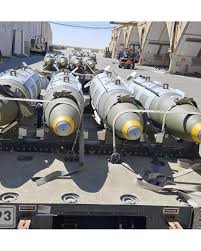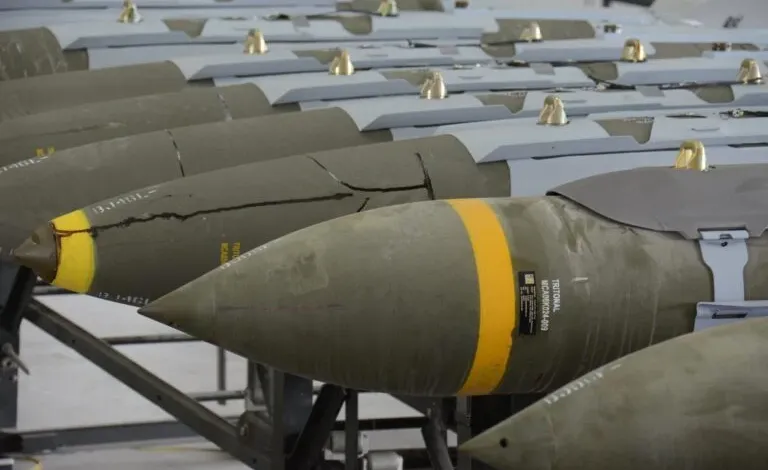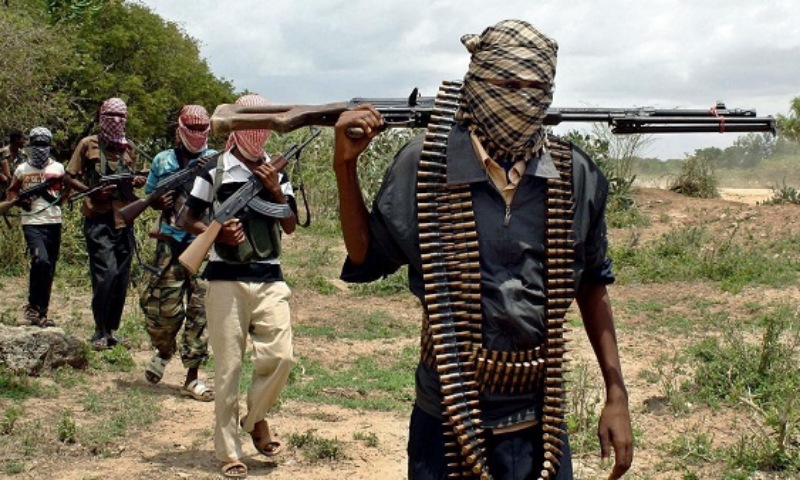United States Approves Potential $346 Million Arms Sale to Nigeria to Boost Counterterrorism and Maritime Security Efforts
In a significant move to strengthen Nigeria’s defense capabilities, the United States government has granted preliminary approval for a potential arms deal worth up to $346 million. The proposed agreement is designed to bolster Nigeria’s ability to combat terrorism, address security threats in the Gulf of Guinea, and improve its overall military readiness.
According to a formal statement issued on Wednesday by the U.S. Defense Security Cooperation Agency (DSCA), the U.S. State Department has authorized Nigeria’s request to procure a comprehensive package of advanced military hardware. This includes an assortment of precision-guided munitions, bombs, rockets, and related support systems aimed at enhancing the operational effectiveness of the Nigerian Armed Forces.
Scope of the Arms Package
The prospective deal outlines the delivery of a variety of advanced weaponry and support items. Among the items included are:
- 1,002 MK-82 general-purpose 500-pound bombs, commonly used for air-to-ground missions.
- 1,002 MXU-650 Air Foil Groups, designed to convert standard bombs into Paveway II GBU-12 laser-guided bombs.
- 515 MXU-1006 Air Foil Groups, intended for 250-pound Paveway II GBU-58 guided bombs.
- 1,517 MAU-169 or MAU-209 computer control groups, which are critical components for guiding Paveway II bombs accurately to their targets.
- 1,002 FMU-152 joint programmable fuzes, allowing for enhanced bomb detonation control.
- 5,000 Advanced Precision Kill Weapon System II (APKWS II) rounds, which integrate high-explosive warheads with MK66-4 rocket motors for precise air-to-ground strikes.
In addition to these major components, the arms package also includes a variety of non-lethal and support equipment, such as FMU-139 programmable fuzes, various bomb components, impulse cartridges, both high-explosive and practice rockets, integration and testing support systems, and technical assistance from both U.S. government and private defense contractors.

Major Defense Contractors Involved
The DSCA identified three major U.S. defense contractors as key players in fulfilling the contract:
- Lockheed Martin, a global leader in defense manufacturing, known for producing advanced aircraft such as the F-35 Lightning II, the C-130 Hercules military transport aircraft, and sophisticated missile defense systems.
- RTX Missiles and Defense (formerly part of Raytheon Technologies), the world’s second-largest defense contractor by revenue, which specializes in missile systems, radars, and high-tech command and control systems.
- BAE Systems, the largest defense company in Europe, which manufactures a wide range of military platforms including armored vehicles, naval ships, and cutting-edge electronics systems.
Strategic Importance and Geopolitical Implications
The DSCA emphasized that the deal aligns with broader U.S. foreign policy objectives and national security interests. By equipping Nigeria—a key regional partner in Sub-Saharan Africa—with more sophisticated weaponry, the U.S. aims to improve regional stability and assist in the fight against terrorism and transnational criminal networks, particularly those operating in and around the Gulf of Guinea.
“This proposed sale will support the foreign policy goals and national security objectives of the United States by improving the security of a strategic partner in Sub-Saharan Africa,” the DSCA noted. “It will enhance Nigeria’s capacity to confront current and emerging threats, including operations against terrorist organizations and efforts to counter illegal trafficking.”
The agency also stressed that the transaction would not disturb the military balance in West Africa and that Nigeria is fully capable of incorporating the weapons into its defense systems without difficulty.
Cost and Previous Agreements
While the $346 million figure represents the upper limit of the potential deal, the final cost will be contingent upon several factors, including Nigeria’s defense budget, its specific operational needs, and the successful negotiation of a formal purchase agreement.
This new development comes on the heels of a previous U.S. arms sale to Nigeria in 2022, which was valued at approximately $997 million. That earlier deal included the sale of 12 AH-1Z Viper attack helicopters, over 2,000 precision-guided weapon systems, and night vision imaging equipment, marking one of the most significant U.S. military sales to Nigeria in recent history.
Enhancing Nigeria’s Security Posture
Should this latest arms deal be finalized, it would represent a major boost to Nigeria’s military capabilities—particularly in light of ongoing efforts to neutralize insurgent groups such as Boko Haram and ISWAP, as well as to suppress maritime crime and illegal trade activities in its territorial waters.
The DSCA concluded by stating that the program will contribute meaningfully to Nigeria’s national security objectives while reinforcing its long-standing defense partnership with the United States.




p3k8as